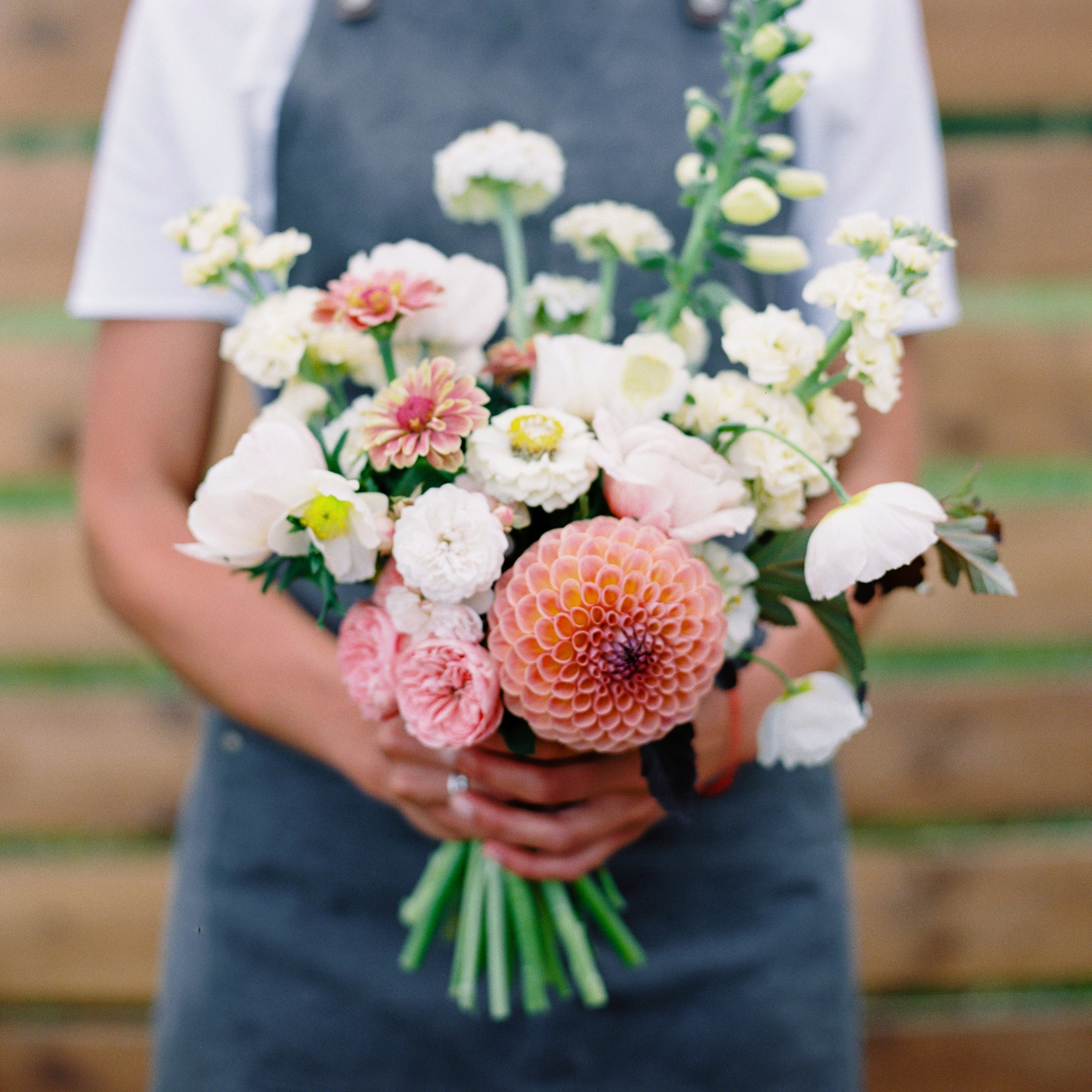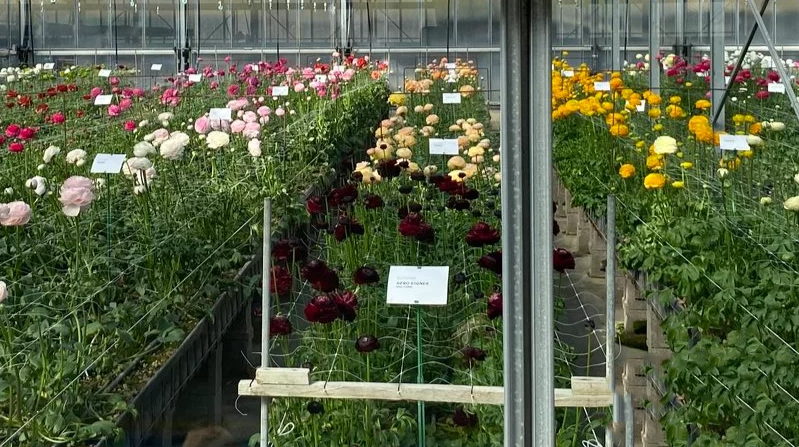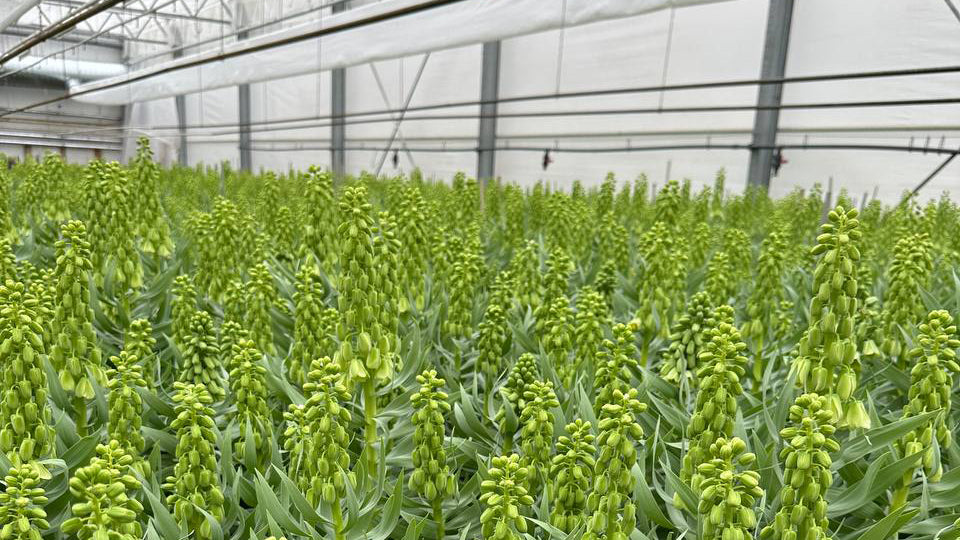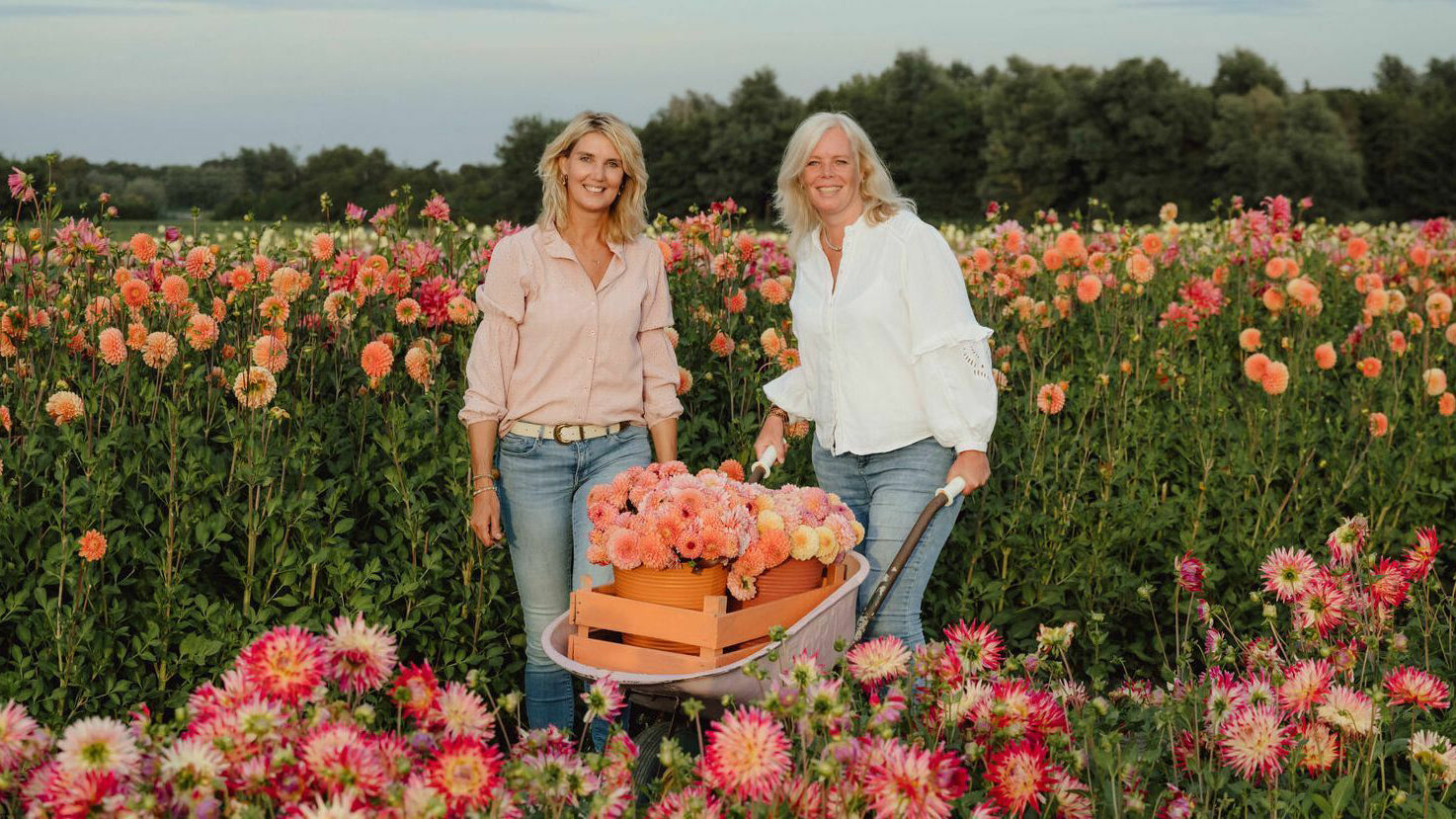Biancheri Creazioni is a breeding company of ranunculus and anemones located in Camporosso, a municipality in Liguria region of Italy (Riviera dei Fiori). Biancheri Creazioni is a world leader in ranunculus and anemones breeding, supplying its corms to growers located around the globe. It is a family-run business which was founded around 30 years ago by Antonio Biancheri and now managed and guided by its son Alberto Biancheri.
Scientific research, creativity and practical experience are the secrets hiding behind the creation of each new variety. Biancheri Creazioni is a technological and scientific company which widely uses both traditional and modern in vitro technologies when creating new varieties. Thanks to the passion and approach of Biancheri, farmers around the world can grow flowers of stunning beauty and consistently high quality.
A quote from the founder of the company:
“I invite you to surprise yourself with me, looking beyond what is usual, beyond the obvious, because everything in nature is a revelation. Like a withered flower another beauty lives. My work starts from there, waiting for the moment. Ripe life! What once gave us its splendor today returns with new and fresh beauty.”
We are absolute fans of Biancheri's variety’s range as well as Company’s persistent approach in the market and are grateful for the opportunity to grow our flowers from their planting material. During this meeting, we spoke with Alex, head of the commercial department, about the flower market as of course about the Company.
1.How long have you worked at Biancheri Creazioni and how many people are employed at the company?
I have been working at Biancheri Creazioni since 2011. Before Biancheri, I worked for a wholesale flower company. Working at Biancheri is a real pleasure. In wholesale sales I have seen just packed bunches of flowers and almost never flowers in their full bloom and beauty. While working here, I interact with the flowers in the experimental greenhouses every day. I also can see the impression flowers make on the people who visit us.
The company employs around 40 people on a constant basis. These are breeders, laboratory staff, commercial department, and technical representatives in every part of the world where we supply planting material. In addition to this, seasonal workers are hired in May-June: about 120 of them are hired here in Camporosso and around 50 people in Sicily.


2.Please tell us a little bit about your production in Italy - here in Camporosso and in Sicily. How does the commercial process for corms production look like?
We have 2 lines of ranunculus varieties - Elegance and Cloni. The production is located in Sicily, and there we grow flowers only in greenhouses. It increases the production costs but allows you to get the highest quality corms.
In 2022 we have harvested about 10 million corms (based on data from previous years growth rates) of Cloni ranunculus. Cloni are literally “clones” obtained from parental plant meristems. Such production is much more complicated, and the cost of each corm is 4 times higher vs elegance corm. All cuttings must be planted by hand.
Elegance series - about 44 million tubers are produced last season, the corms are grown from seeds. We need only 2 weeks for planting the seeds and at this time we attract seasonal workers.
The harvesting starts in May and goes until July. We do a preliminary cleaning and evaluation of the corms distribution by size during the harvest in Sicily. The corms are cleaned and accurately assessed, counted, and sized in Camporosso.
3.How many varieties of ranunculus and anemones do you cultivate? How many corms do you sell annually? What are your main markets?
The production volume accounted for 54 million tubers in 2022. We plan the volume for the coming year based on the previous year's data and plan to increase it. The main markets where we supply tubers:
Italy, Ecuador, China, Colombia, Israel, Holland, France.
Now we have about 140 commercial varieties.



4.How does the process of creating and introduction of new variety look like? How do you take a decision that particular variety should be selected and introduced? How many people are engaged into research and selection?
Every year we introduce 3-4 new commercial varieties. The creation of one variety takes 5-6 years.
The company employs 1 chief breeder and 15 people who assist and support him.
The breeder together with the sales department make the second selection of color and quality of the flowers. We constantly seek feedback from growers and their customers on demand, quality, and vase life of cut flowers. Having discussed and prioritized that we look at productivity, complexity of corms production of selected variety. Based on gathered information, we take decision whether the given variety should go for commercial cultivation or not. This process takes 5-6 years. For us, this is very meticulous and complicated work but at the same time very exciting and responsible.

5.How is the local Italian production of ranunculus and anemones look like? What part of it is grown here in Liguria? How many succession (consecutive) plantings do farmers make and how does the typical season here look like?
Ranunculus are grown in Liguria, Napoli and Puglia regions of Italy. Representatives from our office in Camporosso provide technical support to growers in Liguria. Puglia and Napoli have our representatives/technicians. We supply farmers mainly with germinated tubers for cultivation in the EU. We soak and keep them in a special refrigerator. We send tubers to all other regions in the dry form in which they are stored. Tubers are planted in Italy approximately in the end of August depending on actual weather conditions. Blooming continues from late November till March/April. Successive planting is not used as weather is becoming hot by April.
It is impossible to say exactly how many cuttings will be and how many stems per plant will be obtained. Everything depends on weather conditions. For example, in November, cutting can be done once a week, while and in March almost every day.
Every season, farmers plant new ranunculus and anemone corms, because this is the only way to ensure high quality flowers and maximize their profit and season is short and you can’t change a lot once you have planted your corms. So, corms quality is crucial.
6.What volume do you sell to Italy?What volume of flowers farmers produce? What part of flower production do you export?How do you see ranunculus and anemones industry trends and development for the next 5 years? What are other major producers which you know and what impact/trends do they make?
I believe that the ranunculus anemones industry will grow and continue developing at a very fast pace. The flower industry, florists and end-customers are becoming more demanding, they want more and more refined and unusual varieties, a varied palette.
At Biancheri we believe that research is the key and main driving force for solving challenges and creating new resistant varieties which will meet the requirements of growing distant markets (e.g., US and Latin America). Research and development through the genetic improvement of varieties is the essence of our company. Via the research, we can expand our offer and capture new markets. We have introduced and made successful commercial sales of new anemone varieties of unusual shape, as well as new interesting palettes of ranunculus already this year. Active work is underway to select new ranunculus concept, Moderna, and these are completely new lines, varieties, shapes and palettes.

7.At IPM Essen you had a wonderful booth. Please tell us about your major ambition and idea you had in mind for this exhibition?
There are 2 main exhibitions for us. IFTF is a professional exhibition where we hold business meetings, make new contacts, find new customers and partners. And the second exhibition is IPM Essen, which is also about promoting flowers to the broader audience. Florists prefer visiting IPM as a lot of floristic contests are held there. With our new booth, we wanted to show florists and end customers the variety of colors and beauty of Italian ranunculus and anemones. In this way we support the growers - our customers who grow them.




Laisser un commentaire
Ce site est protégé par hCaptcha, et la Politique de confidentialité et les Conditions de service de hCaptcha s’appliquent.